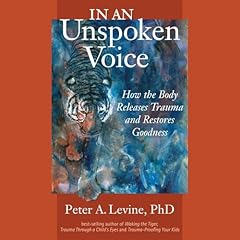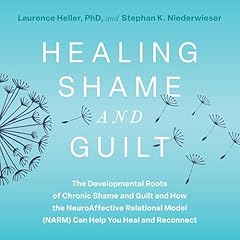
Healing Developmental Trauma
How Early Trauma Affects Self-Regulation, Self-Image, and the Capacity for Relationship
No se pudo agregar al carrito
Add to Cart failed.
Error al Agregar a Lista de Deseos.
Error al eliminar de la lista de deseos.
Error al añadir a tu biblioteca
Error al seguir el podcast
Error al dejar de seguir el podcast
 Exclusivo para miembros Prime: ¿Nuevo en Audible? Obtén 2 audiolibros gratis con tu prueba.
Exclusivo para miembros Prime: ¿Nuevo en Audible? Obtén 2 audiolibros gratis con tu prueba.Compra ahora por $21.38
-
Narrado por:
-
Tom Perkins
Explaining that an impaired capacity for connection to self and to others underlies most psychological and many physiological problems, clinicians Laurence Heller, PhD, and Aline LaPierre, PsyD, introduce the NeuroAffective Relational Model™ (NARM), a unified approach to developmental, attachment, and shock trauma that emphasizes working in the present moment. NARM is a somatically based psychotherapy that helps bring into awareness the parts of self that are disorganized and dysfunctional, without making the regressed, dysfunctional elements the primary theme of the therapy. It emphasizes a person's strengths, capacities, resources, and resiliency, and is a powerful tool for working with both nervous system regulation and distortions of identity such as low self-esteem, shame, and chronic self-judgment.
Download the accompanying reference guide.©2012 Laurence Heller, PhD, and Aline LaPierre, PsyD (P)2015 TantorLos oyentes también disfrutaron:




















Reseñas de la Crítica
Las personas que vieron esto también vieron:


















A Must Read if you like reading about healing
Se ha producido un error. Vuelve a intentarlo dentro de unos minutos.
great information
Se ha producido un error. Vuelve a intentarlo dentro de unos minutos.
Therapist
Se ha producido un error. Vuelve a intentarlo dentro de unos minutos.
This book gave my pain a voice and brought my subconscious patterns to the forefront for me to investigate and refine.
I am validated. My negative patterns are learned and not genetic. My life is changed, thank you.
Changed My Life
Se ha producido un error. Vuelve a intentarlo dentro de unos minutos.
Learning the different patterns
Se ha producido un error. Vuelve a intentarlo dentro de unos minutos.


